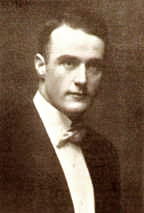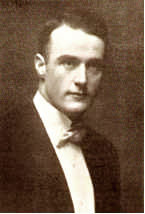Do Grading Systems Affect the Level of Effort Put Forth by Law Students?
Marquette Law School’s current grading system, which is representative of contemporary law school systems, limits the number of honors and B-level grades by imposing a mandatory mean grade of 3.0. Figuratively speaking, for every grade awarded above the level of B, there must a grade awarded an equal distance below a B. Our previous system limited the number of honors grades but placed no limit on the number of B’s that an instructor could award. Neither system “required” instructors to award any specific number of “bad” grades, i.e., grades of C or lower, which fall below the level necessary to remain a student in good standing, although it is much harder to avoid doing so under the current system.
One justification for the new system is that by making “bad” grades more likely, students will work harder. Whether or not this is a consequence of the new grading system is an open question.
I do believe that grading systems can be used to modify student behavior but to have a noticeable effect, the changes have to be pretty significant.
When I started teaching at Chicago-Kent in 1987, the school had a mandatory curve that dictated that at least 55 percent of grades had to be C+ or lower. (C+ was by far the most common grade.) A C+ was a 2.5, and below 2.1 was a flunk out.
Students who maintained a straight C+ average, of whom there were many, often worried that they were just one bad examination period away from flunking out. Anecdotal evidence suggests that a similar system (albeit one that used numbers rather than grades) was in effect at Marquette before the mid-1980’s.
Chicago Kent students worked very hard to avoid the C range of grades, although of course most of them were destined to receive them. No matter how much the law school emphasized that C+ was not a bad grade, student balked at seeing it that way. The onset of grade inflation in the 1960’s meant that the days when C was an acceptable mid-range grade had been over a long time by 1987.
The argument that the Kent curve was disadvantaging its students compared to those at Loyola and DePaul in the competition for jobs finally carried the day, and in 1991, the school went to a system in which only 20 percent of the grades were required to be B- or lower. Overnight, the standard grade went from a C+ to a B.
Within a year, it was noticeable that students were not working as hard as they had in the past. On the other hand, there was also noticeably less anxiety about grades on the part of students.
The last law school that I know of to have such a draconian curve or mandatory mean was Loyola Marymount of Los Angeles, but that school threw in the towel on rigorous grading earlier this summer. Loyola received considerable attention recently when it raised its mean grade point average from 2.7 to 3.0, and retroactively raised its current students’ GPA’s by 0.3, across the board.
If law schools really want their students to work harder, they can accomplish that end by grading much more rigorously. But who would have the fortitude to install such a grading curve in the twenty-first century? My guess is no one.


